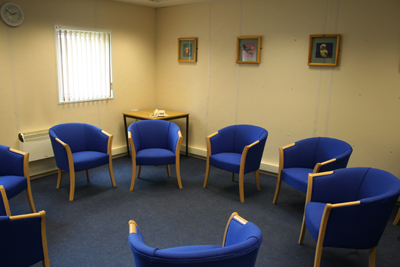The Difference Between Family Therapy and Family-Based Therapy for Eating Disorders
I notice and feel concerned about the different ways the term "Family Therapy" is used; especially when it is applied to eating disorders treatment (treatment of anorexia and bulimia). As far as I can see, there are three different - and incompatible - ways people use it.
In popular use, I notice a mistaken idea that "family therapy" is a family argument with a psychotherapist as witness. This view of the term isn't about theory, it is about who is there. How much a person likes this idea seems to depend on whether they have a problem or they think someone else in the family needs fixing. Many people distrust therapy and feel accused of something if it is even suggested as an idea.
That's Not What Family Therapy is to a Therapist
Family therapists view it differently. Family therapy is a well-structured and professional approach to both family conflict and to treating mental health issues in the family. Therapists aren't there to be a referee or practice loose psychoanalytic mumbo-jumbo. They are trained in specific techniques and methodologies. There was, in the early days of family therapy, a sense that mental illness in one family member was a symptom of family problems: by working with the family to change their relationships and patterns, the therapist worked toward making the illness unnecessary and return the family and the individuals to normal functioning. Over time, this has evolved to include many techniques and approaches to illness and relationships. Family therapy is often now more about problem-solving and communication, rather than uncovering hidden problems.
 Family-Based Maudsley Therapy
Family-Based Maudsley Therapy
There is a particular type of family therapy used in eating disorders that is so different from traditional family therapy that it deserves its own name, but is unfortunately often still just called Family Therapy, or Family-Based Therapy. In popular use, much to the chagrin of certain people, it is called Maudsley therapy. (I'd like to convince everyone to call it Maudsley Family-Based Therapy for clarity's sake)
The reason this approach is so different is that it actually stands traditional family therapy on its head, while still using some of the same important insights and techniques of the older use of the term. Not only are families not seen as the problem, in the Family-Based Maudsley therapy, families are seen as the necessary and most helpful tool for recovery. Instead of pathologizing, the approach seeks to empower and draw the strengths out of families with the goal of wresting control from the eating disorder and giving it back to the person. The illness is recognized as a real disease and the real problem, not the family. As the patient returns to normal life, the family is coached as they normalize relationships with one another. The Family-Based Maudsley Therapy approach has good research data to recommend it. It is currently the recommended first line of treatment for adolescent anorexia and increasingly used for bulimia as well.
The problem is that parents seeking care don't know what to ask for or why. Many therapists are trained to offer traditional family therapy, but very few have familiarity or training in Family-Based Maudsley Therapy. Traditional family therapy has little data to support its use with eating disorders, but gets confused with Family-Based Maudsley Therapy; even in the professional literature. Families can be seeking one type of therapy and receive the other and even the therapist may be unaware of the difference.
Learn the Terms
I strongly advise parents to learn the terms and understand the differences before interviewing eating disorders treatment clinicians. What approach is best suited for the situation and what the family chooses is up to them, of course, but it is important to know the difference. Although Family-Based Maudsley Therapy may sound like Family Therapy, it is not the same thing.
APA Reference
Collins, L.
(2010, April 21). The Difference Between Family Therapy and Family-Based Therapy for Eating Disorders, HealthyPlace. Retrieved
on 2026, March 5 from https://www.healthyplace.com/blogs/eatingdisorderrecovery/2010/04/the-difference-between-family-therapy-and-family-based-therapy-for-eating-disorders
Author: Laura Collins
In our case our own strong belief in the first definition was a great hindrance to the practice of either of the second! I would ask parents to try to ditch the image of The Simpsons Family Therapy session as a valid practice session for their own.